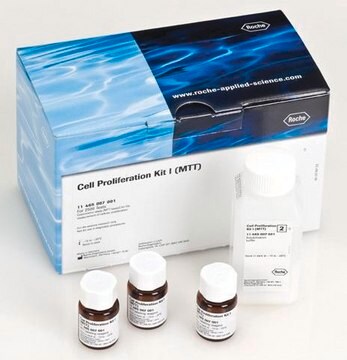MAK317
Sorbitol Dehydrogenase Assay Kit
sufficient for 100 colorimetric tests
About This Item
Productos recomendados
método de detección
colorimetric
enfermedades relevantes
endocrinological disorders, diabetes; gastrointestinal diseases
temp. de almacenamiento
−20°C
Categorías relacionadas
Descripción general
Características y beneficios
Idoneidad
Principio
Palabra de señalización
Warning
Frases de peligro
Consejos de prudencia
Clasificaciones de peligro
Eye Irrit. 2 - Flam. Liq. 3 - Met. Corr. 1 - Skin Irrit. 2 - STOT SE 3
Órganos de actuación
Respiratory system
Código de clase de almacenamiento
3 - Flammable liquids
Punto de inflamabilidad (°F)
75.2 °F - closed cup
Punto de inflamabilidad (°C)
24 °C - closed cup
Elija entre una de las versiones más recientes:
Certificados de análisis (COA)
It looks like we've run into a problem, but you can still download Certificates of Analysis from our Documentos section.
Si necesita más asistencia, póngase en contacto con Atención al cliente
¿Ya tiene este producto?
Encuentre la documentación para los productos que ha comprado recientemente en la Biblioteca de documentos.
Nuestro equipo de científicos tiene experiencia en todas las áreas de investigación: Ciencias de la vida, Ciencia de los materiales, Síntesis química, Cromatografía, Analítica y muchas otras.
Póngase en contacto con el Servicio técnico







